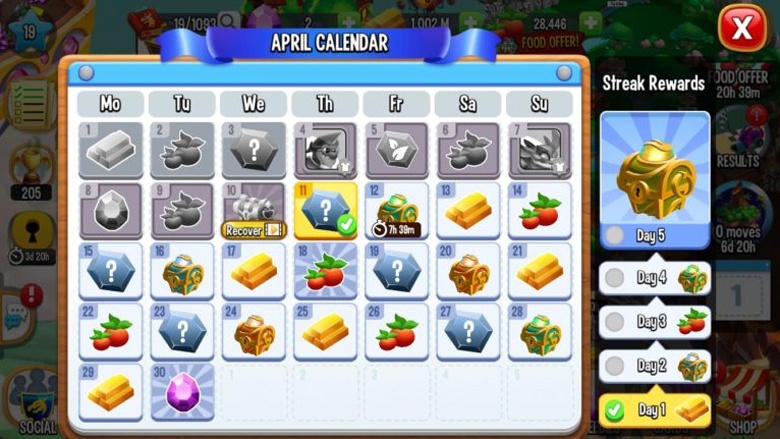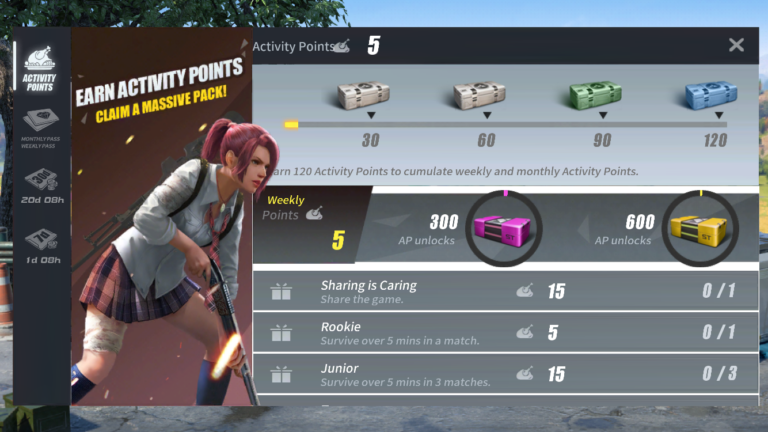Game analytics company, GameRefinery, looks at how appointment mechanics affect retention in a new blog post.
The analysts studied top 200 games by revenue (US market, iOS) across Casual, Mid-Core, Sports & Racing, and Casino categories. Here’s what they learned about appointment mechanics:
- All categories feature daily gift systems. It’s what sets the best-selling titles apart.
- Mid-Core and Sports & Racing games often ask players to complete a task/quest as part of their appointment mechanic. Casual and Casino games tend to directly hand in their gifts.
- Casino games reward players several times a day in the form of chip handouts.
- With Casual and Casino titles, the mechanic refreshment rate does not typically exceed 24 hours. However, Mid-Core games often have a time interval of more than a day (48h gacha or weekly quest system).
- Across all categories, almost no games use online time rewards. In China, on the other hand, it’s a popular feature.
Case Studies
In the second part of the post, GameRefinery analysts look at several games that creatively implement appointment mechanics.

Dragon City Mobile (Social Point)
A. Dragon City Mobile’s login calendar introduces the progression element to the title’s appointment mechanic. The game does not simply reward the player with daily gifts, but increases their value based on how many consecutive days the player logs in. If the player misses a day, the developer can let them recover the missed reward by either watching an ad or by making an in-app purchase.

Rules of Survival (NetEase)
B. Rules of Survival by NetEase refreshes a set of tasks and rewards on a weekly and monthly basis. The player has to beat certain objectives within that timeframe to receive better rewards.

Raid: Shadow Legends (Plarium Global Ltd)
C. Chinese RGPs reward players not just for the frequency of visits, but also for the time players spend playing the game. To that effect, the games will typically feature a timer showing how much time is left before unlocking the next reward. The length of playtime is, of course, something that the developers in China need to balance against the country’s stringent regulations.
Anyway, Chinese online games do not stop there. They even reward gamers for the time they spend NOT playing the game. Once they return, they can collect XP they earned while offline. Often, there is a limit to how much XP the player can get from a single session, so to maximize their offline reward, players have to check back in regularly.
You can find more info on appointment mechanics here.
